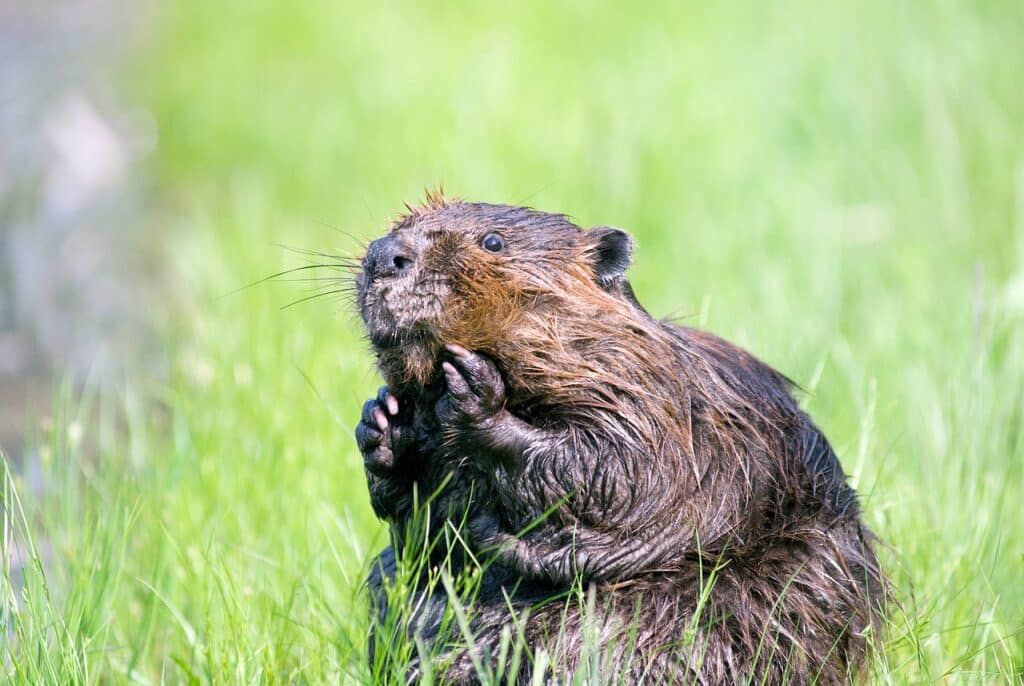With the climate crisis looming, the sixth mass extinction emerging, and biodiversity dwindling, it’s easy to feel anxious and overwhelmed by the future. We must, however, remain hopeful. There are solutions we are yet to take full advantage of, and we can mitigate against further damage if we make the right choices. One of these underused, yet highly effective and sustainable approaches is rewilding.
As defined by Rewilding Britain, rewilding is the “large-scale restoration of ecosystems to the point where nature can take care of itself”. The term was coined in 1992 in North America by environmentalist and founder of the Rewilding Institute, Dave Foreman, and it has since grown and evolved, with it now being used and adapted worldwide. Rewilding aims to progress from protecting nature towards recovering and restoring it, eventually enabling it to once again self-regulate and self-sustain without the need for human intervention. This is needed where disturbance to ecosystem function has thrown it off balance, disrupting natural processes from occurring on their own.
So, why is rewilding an effective and necessary way to address the climate crisis? There is an abundantly clear mismatch between our knowledge of the severity of the crisis, and our current lack of sufficient response. Dominant visions to protect the future of our planet favour technological innovation and progress, with beliefs that this will enable us to address ecological collapse whilst also allowing production and consumption to grow. However, scientific data argues that this combination of events is impossible. We cannot continue to increase our production and consumption without depleting the planet’s resources, emitting large quantities of greenhouse gases and producing irreversible and dangerous environmental changes.
Nature is our greatest ally in tackling climate change. Natural ecosystems are already well adapted to absorb and store carbon dioxide, and ensuring that these ecosystems are in balance will boost their natural function. Britain’s native habitats such as woodland, heathland, peatland and saltmarsh are significant carbon stores. Peat is one of the greatest absorbers of carbon, storing more than all the world’s rainforests, and whilst Britain has 13% of global peat, more than 80% of it is damaged. Current management of many British peatlands leaves them dry, causing them to counterproductively release millions of tonnes of carbon into the atmosphere every year. By re-wetting these ecosystems, their natural processes can be restored, once again enabling them to act as carbon sinks. Restoring these habitats through rewilding over just 30% of Britain would enable them to store 12% of UK greenhouse gas emissions. Rewilding our seas also allows carbon to be absorbed by marine habitats. Mangroves, seagrass, seabed sediments, shellfish and kelp are natural carbon stores known as ‘blue carbon’. In the UK, these marine ecosystems are being destroyed by dredging and bottom-trawling, threatening the release of millions of tonnes of carbon. Yet rewilding these types of ecosystems has the potential to store 1.83 billion tonnes globally, indicating its significant potential.
Reintroducing missing wildlife species to landscapes they are native to both on land and in the sea plays a vital role in drawing carbon out of the atmosphere, as predators and other keystone species are required to maintain the structure, resilience and diversity of ecosystems. For example, the reintroduction of wolves to Yellowstone Park in the USA lowered the population of deer, reducing their browsing of leaves and shoots. This meant that forests grew back more plentifully, absorbing more carbon from the atmosphere. Similarly, sea otters in the Pacific feed on sea urchins, restricting their population growth. This helps to conserve underwater kelp forests that sea urchins eat, allowing the kelp to carry out its function of absorbing and storing carbon.
Further, rewilding improves the ability of wildlife adapt to the effects of climate change and reduce the threat of extinction of many wildlife species currently at risk. Many species’ natural behaviour includes long-distance seasonal travel and foraging, requiring large, biodiverse habitats and well-connected landscapes. However, the excessive human use of wild land through activities such as industrial agriculture and extraction have depleted and broken up the landscape, incapacitating animals from carrying out these innate behaviours, affecting their natural life cycles and needs. Landscape connectivity and biodiversity is even more important in the face of mass extinction and the climate crisis (as climate zones shift increasingly north) to allow habitat adaption and animal movement. This will help to prevent wildlife populations from declining. 56% of species in Britain are currently in decline and 15% are at risk of extinction, but in landscapes where natural processes have been reinstated such as at Dundreggan in the Highlands, native species are thriving. This highlights just how important rewilding is for the future of our wildlife.
Rewilding also helps us manage the extreme weather events resulting from existing climate change. Replenishing depleted land with native trees and scrubs increases water absorption, slowing the downstream flow of water, and reducing the risk of flash floods. The UK government invested £.2.6 billion on flood defences between 2015 and 2021, but by restoring rivers to their natural state, we can reduce the risk of floods at a much lower cost. Reintroducing beavers to their native habitats also lessens flood risk. Beavers dig out channels to allow them to explore their surrounding area safely, which creates a new network of watercourses for water to gently trickle out into. This slows the passage of water, naturally lowering the risk of flash floods after storms and intense rainfall. This slow release of water into neighbouring soils, alongside the replenishment of vegetation and biodiversity, rebuilds soil health and helps to restore wetland habitats, also reducing the risk of wildfires.
Not only is rewilding incredibly valuable in tackling the biggest environmental challenges of our time, it has further advantages, benefitting our society even more widely. Rewilding comes with ample local economic opportunity for rural communities, with jobs created in areas such as livestock management and river restoration. The resurgence of wildlife and biodiversity also generates eco-tourism, creating further employment opportunities and resulting in an increase in consumption and investment in the local area. Rewilding across England and Wales over the past 10 years has generated a 65% increase in jobs in these areas. Moreover, restored natural landscapes are vital for our physical and mental wellbeing, providing us with clean air to breathe and healthy soils, as well as a place to exercise, connect with people, learn from and enjoy.
Rewilding is clearly in all of our interests; why wouldn’t we want to help nature restore itself? Now more than ever, with ecological disaster looming and threatening humanitarian crisis, we need to reconnect and work with nature, not against it, and rewilding is the ideal way to do just that.
Provocations
- How else can we reconnect with nature to tackle our climate and environmental challenges on a personal, community-wide, national and even international scale?
- What can we do to meet the shortfall between our knowledge of environmental and humanitarian crises and the current response of governments and businesses? Why do you think this shortfall still exists?
- Do these environmental challenges come into play when you make personal or work-related decisions?




